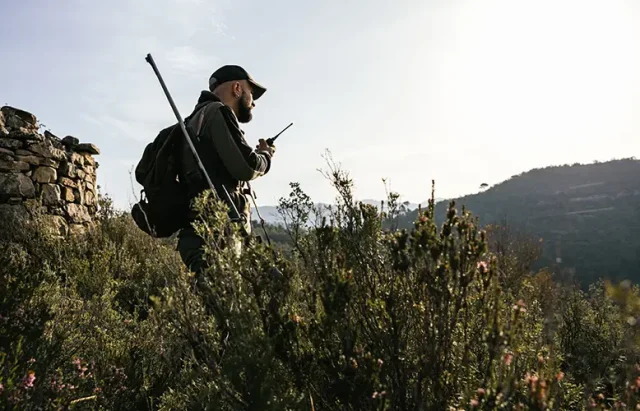
Hunting is one of the oldest and most rewarding ways to connect with nature. It’s a pursuit that demands patience and a wide range of practical skills. Whether you’re dreaming of bagging a trophy buck on one of those sought-after Mexico mule deer hunts, or simply planning a weekend trip into the woods, the skills you bring with you are just as important as your gear.
Core Wilderness Skills Every Hunter Needs
Mastering essential wilderness skills is key to your success — and your safety. Great hunting isn’t just about marksmanship; it’s about understanding the land, staying prepared, and reading nature like a seasoned guide.
Let’s dive into the must-have skills every hunter should know before heading into the wild.
1. Mastering Map Reading and Navigation
Forget GPS for a second. While technology is great, batteries die and signals fade. Every hunter should be able to read a topographic map and use a compass. Learning to recognize terrain features like ridges, valleys, and water sources can be a game-changer, especially when you’re tracking elusive game during Mexico mule deer hunts in the vast desert landscapes.
Pro Tip: Practice at home first. Get familiar with reading maps and finding “you-are-here” points in a local park or forest.
2. Building Strong Survival Skills
Sometimes hunts don’t go according to plan. Weather shifts, equipment fails, or you get turned around. Having basic survival skills like building a shelter, starting a fire without matches, and finding clean water can turn a bad situation into a story you laugh about later.
Must-Have Survival Skills:
- Fire starting (even in wet conditions)
- Basic first aid
- Emergency shelter construction
- Water purification techniques
If you’re spending multiple days in the wild, a compact survival kit should always be part of your gear list.
3. Perfecting Your Tracking Abilities
Tracking isn’t just a cool party trick — it’s an essential hunting skill. Being able to identify fresh tracks, scat, rubs, and other animal signs helps you move smarter and increases your odds of success.
Key Signs to Watch:
- Fresh footprints
- Droppings (age, moisture, size)
- Broken branches or rubbed trees
- Bedding areas
Practice by visiting trails and trying to “read” the movements of local wildlife.
4. Understanding Animal Behavior
Different species move, feed, and behave in unique ways. For instance, knowing when mule deer are most active (typically early morning and late evening) can help you plan your hunt more effectively.
Helpful Tips:
- Study animal behavior specific to your target species.
- Learn about seasonal changes that affect movement.
- Watch videos and read case studies on successful hunts.
The more you “think like the animal,” the more successful you’ll be — especially on highly competitive hunts.
5. Staying Physically Fit
Hiking rugged terrain with a heavy pack isn’t for the faint-hearted. Building endurance, strength, and flexibility will help you not just survive but thrive on your hunts.
Pre-Hunt Conditioning:
- Cardio exercises (hiking with a loaded pack, running)
- Strength training (especially legs and core)
- Flexibility work (yoga or stretching routines)
The better shape you’re in, the further you can go and the better your odds of finding that trophy.
6. Honing Your Shooting Skills
It might seem obvious, but consistent, ethical shooting is crucial. Spend plenty of time at the range before you ever aim at a living target.
Tips for Better Shooting:
- Practice from different positions: standing, kneeling, prone.
- Train for real-world conditions like wind, rain, and cold.
- Focus on ethical shot placement to ensure a quick, humane harvest.
Many outfitters for recommend practicing shots out to 300 yards or more — you might only get one opportunity!
7. Packing Smart and Light
The gear you bring can make or break your experience. Bring what you need, but don’t overburden yourself. Essentials include:
- Navigation tools (compass, map, GPS)
- First aid kit
- A good hunting knife
- Food and water supplies
- Fire-starting gear
- Quality optics (binoculars, rangefinder)
- Proper clothing for the weather
Golden Rule: Everything you pack should serve a clear purpose.
8. Practicing Leave No Trace Principles
Being a responsible hunter means respecting the land. Follow “Leave No Trace” principles to minimize your impact and preserve the wilderness for future generations.
Simple Rules:
- Pack out all trash
- Bury human waste properly
- Respect wildlife and other hunters
Good stewardship ensures hunting areas stay beautiful and productive.
A Journey Worth Preparing For
Hunting is more than a sport — it’s a timeless tradition that connects us to the land and the life it sustains.
Preparation isn’t optional. It’s the secret weapon that separates a memorable hunting expedition from a frustrating misadventure. Honing your wilderness skills ensures you’re ready to face whatever challenges the wild throws your way.
Stay sharp, honor the land, and most importantly, enjoy every moment out there.
Happy hunting!





